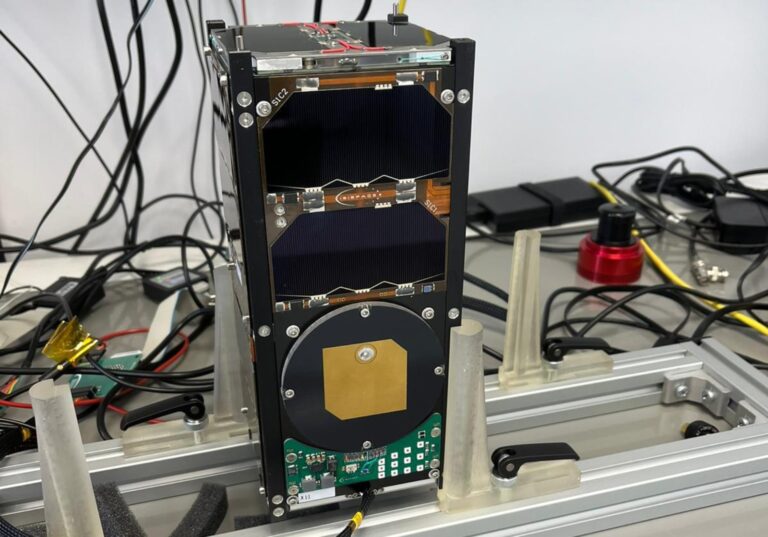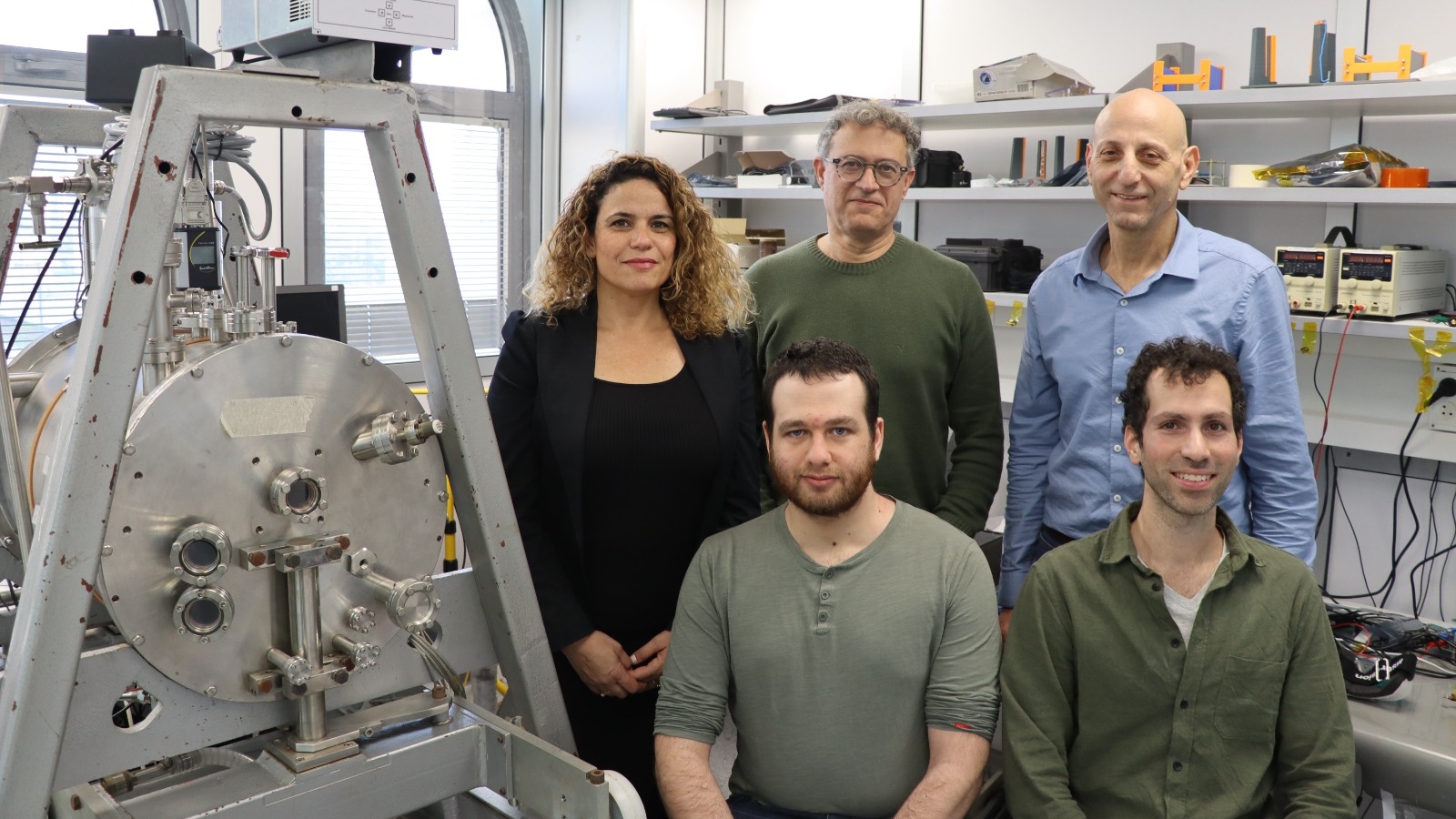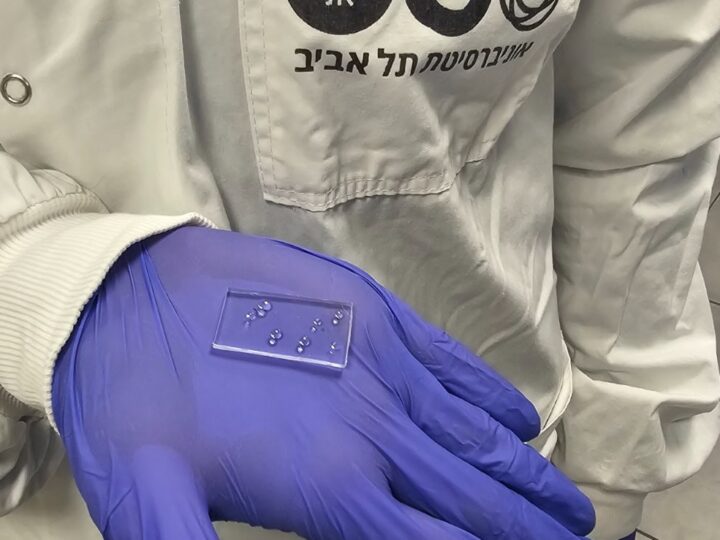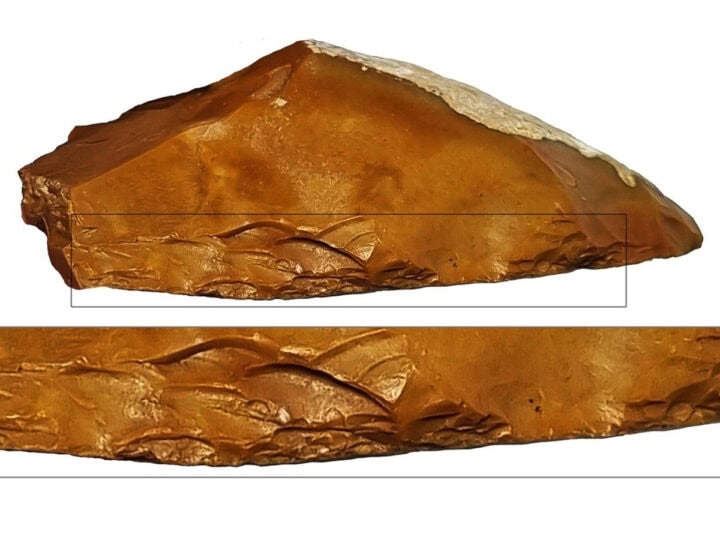Researchers at the Center for Nanosatellites and New Space of Tel Aviv University’s Fleischman Faculty of Engineering just launched their third nanosatellite into space in less than two years.
TAU-SAT3, sent up last week in collaboration with the university’s QuanTAU Center on a SpaceX Falcon 9 rocket from the United States, paves the way toward “optical and quantum communication from space via nanosatellites.”
The previous two were “designed to measure cosmic radiation around the Earth and to test various means for protecting the electronic systems installed on satellites from this radiation,” explained center director Prof. Meir Ariel.
TAU-SAT3 ventures into the developing field of quantum communication, which seeks to enable the fast and secure transfer of communication for files and data over long distances, impervious to hackers.
Measuring only 20 centimeters long, TAU-SAT3 is expected to orbit the Earth for about five years at an altitude of 550 kilometers (342 miles), powered by batteries made by the Israeli startup Epsilor.
The satellite will communicate with an optical ground station on the roof of the Shenkar Physics Building at TAU, one of the only such stations in the world that can lock onto, track and collect data from a nanosatellite.
How does it work?
“When the satellite passes over Israel, the device will emit light at various wavelengths and the telescope of the optical ground station will identify the tiny flash, lock onto it, and track it,” Ariel explained. “The nanosatellite will simultaneously send both optical and radio signals back to Earth.”
The communication systems on the nanosatellite and the ground station can “reconstruct lost data in real time using smart signal processing algorithms,” Ariel noted.

That’s important since data can get lost when the optical device temporarily turns towards the ground station, but the antenna is facing in a different direction.
Quantum communication has another advantage, explains Prof. Yaron Oz, head of TAU’s Center for Quantum Science and Technology. “Whenever a hostile entity tries to intercept a transmitted message, the message immediately dissipates.”
Such “eavesdropping-proof quantum communication” is at the forefront of scientific research, Oz noted. “Governments and giant organizations around the world are involved in a race for quantum encryption capabilities – especially since quantum computers are expected to crack today’s encryption algorithms.”
And once that encryption is cracked, “all data will be exposed – including personal medical and financial records, email and WhatsApp messages,” Oz said. This makes quantum encryption “highly relevant to protecting everyone’s privacy.”
Other TAU faculty members taking part in the project: principal investigator Prof. Ofer Amrani; Prof. Haim Suchowski, head of the Femto-Nano Research Laboratory; and the students and researchers who developed the nanosatellite’s systems – Dolev Bashi, Idan Finkelstein, Michael Tzukran, Ofir Cohen, David Greenberg, Barak Levi, Alon Haramati, Onn Rengingad, Ofir Yafe, Shahar Morag, Ori Dagan, Elad Sagi and Orly Blumberg.

















